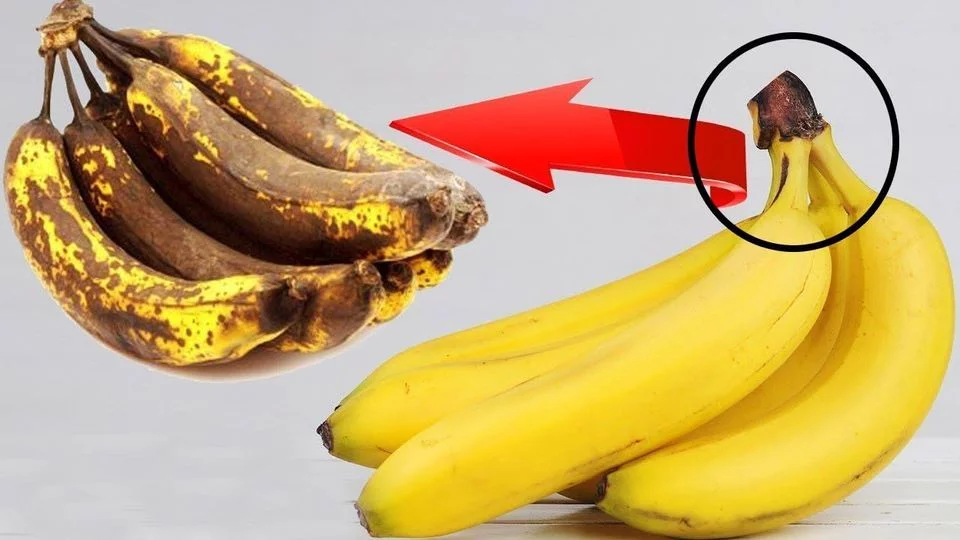Bananas are a delicious and nutritious fruit that many of us enjoy on a regular basis. However, one common issue with bananas is their tendency to ripen quickly and turn brown, ultimately leading to wastage. But what if there was a way to extend the shelf life of bananas and prevent them from becoming overripe and unappetizing? In this article, we will explore a method that can help you keep your bananas fresh for a longer period, minimizing food waste and ensuring you can savor their natural sweetness for days to come.

The Ethylene Dilemma:
Bananas emit a naturally occurring gas called ethylene, which is responsible for their ripening process. Ethylene speeds up the ripening of fruits and vegetables, causing them to soften and change color. When stored together, bananas release higher amounts of ethylene, accelerating the ripening process not only for themselves but for nearby produce as well. This phenomenon is often the reason why bananas seem to turn brown faster when stored in close proximity to other fruits.

The Solution: Separation and Enclosure
To keep bananas fresh for an extended period, you can employ a simple yet effective technique: separating and enclosing them. By separating each banana from the bunch and enclosing the crown of each banana with plastic wrap, you create a barrier that slows down the release of ethylene gas and prevents it from reaching the rest of the fruit. This method effectively isolates the ripening process to each individual banana, allowing you to enjoy them at your own pace.

Step-by-Step Instructions:
1. Separate the bananas:
Gently remove each banana from the bunch, taking care not to bruise or damage them. It’s essential to handle them with care to avoid premature bruising.
2. Wrap the crown:
Take a small piece of plastic wrap and cover the crown (the stem end) of each banana individually. Ensure the plastic wrap is snugly wrapped around the stem, but not too tight to cause damage. The wrap should form a small enclosure around the crown.

3. Store in a cool place:
Place the wrapped bananas in a cool and well-ventilated area, such as a fruit bowl or on a shelf in your kitchen. Avoid exposing them to direct sunlight or extreme temperatures, as this can hasten the ripening process.
4. Monitor and consume:
Regularly check the bananas for ripeness. The plastic wrap may make it slightly difficult to assess their color, so rely more on touch and firmness. Once a banana reaches your desired ripeness, remove the plastic wrap, and enjoy!
Benefits of This Method:
Prolonged shelf life: By separating and enclosing each banana, you can significantly extend their freshness, allowing you to enjoy them over a longer period. This method can be particularly useful when buying bananas in bulk or during periods when they are prone to ripen quickly.
Reduced food waste: By slowing down the ripening process, you minimize the chances of bananas going bad before you can consume them. This reduces food waste and saves money in the long run.
Flexibility in consumption: With this method, you can control the ripening process of each banana, giving you the freedom to choose when to eat them based on your preference. Whether you prefer firm and slightly green bananas or fully ripe and sweet ones, you have more control over their ripeness.
Say goodbye to the frustration of discovering rotten bananas after just a few days. With the simple technique of separating and enclosing each banana’s crown with plastic wrap, you can extend their shelf life and savor their delicious flavor over a more extended period. This method not only reduces food waste but also grants you the flexibility to enjoy bananas at your own pace. So, the next time you bring home a bunch of bananas, try this easy method and enjoy fresh and tasty bananas for days to come!
